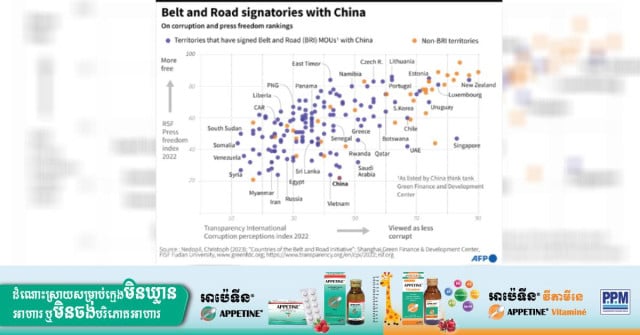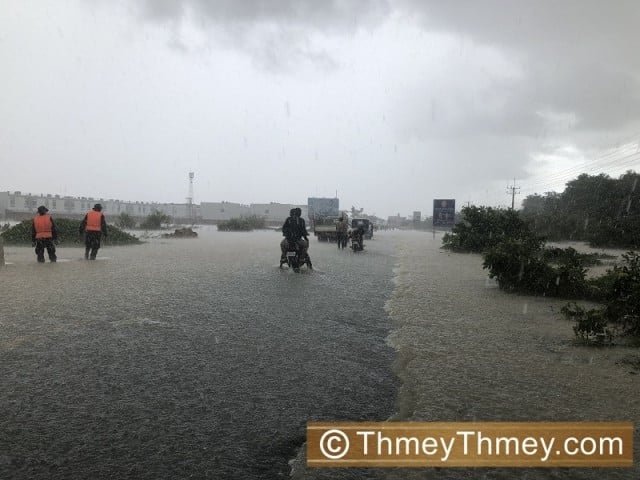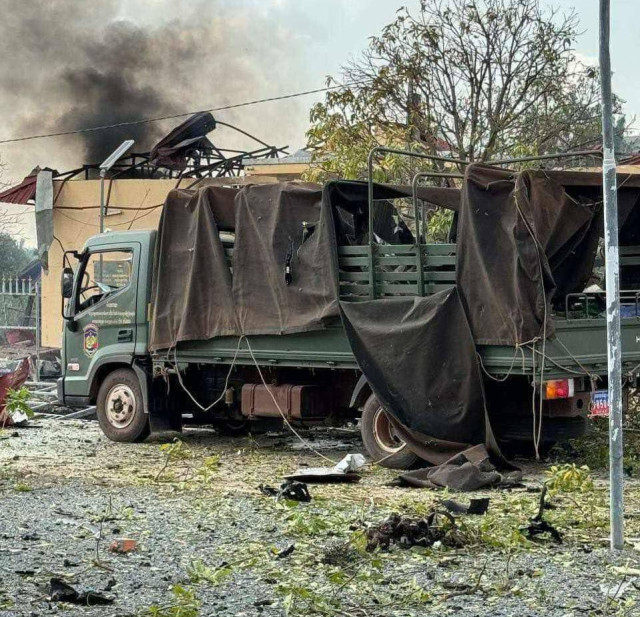China Owed More Than $1 Trillion in Belt and Road Debt: Report

- By Agence France-Presse (AFP)
- November 7, 2023 5:00 PM
Beijing, China--China is owed more than a trillion dollars through its Belt and Road project, making it the biggest debt collector in the world, a report said this week, with an estimated 80 percent of the loans supporting countries in financial distress.
Beijing says upwards of 150 countries stretching from Uruguay to Sri Lanka have signed up to the BRI, a vast global infrastructure push unveiled by President Xi Jinping a decade ago.
The first decade of the initiative saw China distribute huge loans to fund the construction of bridges, ports and highways in low and middle-income countries.
But much more than half of those loans have now entered their principal repayment period, said a report released Monday by AidData, a research institute tracking development finance at Virginia's College of William and Mary.
That figure is set to hit 75 percent by the end of the decade, it added.
Crunching data compiled on Chinese financing of almost 21,000 projects across 165 countries, AidData said Beijing had now committed aid and credit "hovering around $80 billion a year" to low and middle-income nations.
The United States, in contrast, has provided $60 billion to such countries a year.
"Beijing is navigating an unfamiliar and uncomfortable role -- as the world's largest official debt collector," the report said.
"Total outstanding debt -- including principal but excluding interest -- from borrowers in the developing world to China is at least $1.1 trillion," AidData said.
AidData, it added, "estimates that 80 percent of China's overseas lending portfolio in the developing world is currently supporting countries in financial distress".
Proponents of the BRI praise it for bringing resources and economic growth to the Global South.
But critics have long pointed to opaque pricing for projects built by Chinese companies, with countries including Malaysia and Myanmar renegotiating deals to bring down costs.
And AidData said China has in recent years suffered reputational damage among developing countries, with its approval rating falling from 56 percent in 2019 to 40 percent in 2021.
But China is "learning from its mistakes and becoming an increasingly adept crisis manager", the study said.
Beijing is seeking to de-risk the BRI by bringing its lending practices more in line with international standards, it stressed.
But also among those methods are "increasingly stringent safeguards to shield itself from the risk of not being repaid", it said.
That includes allowing key BRI lenders to pay themselves principal and interest due by "unilaterally sweeping" borrowers' foreign currency reserves held in escrow.
"These cash seizures are mostly being executed in secret and outside the immediate reach of domestic oversight institutions... in low- and middle-income countries," it said.
"The ability to access cash collateral without borrower consent has become a particularly important safeguard in China's bilateral lending portfolio."
At a major summit in Beijing last month marking the project's tenth anniversary, Xi said China would inject more than $100 billion of new funds into the BRI.
But a joint report this year by the World Bank and other institutions, including AidData, said Beijing had been forced to hand out billions of dollars in bailout loans to BRI countries in recent years.
The initiative has also drawn scrutiny for its massive carbon footprint and the environmental degradation caused by massive infrastructure projects.















